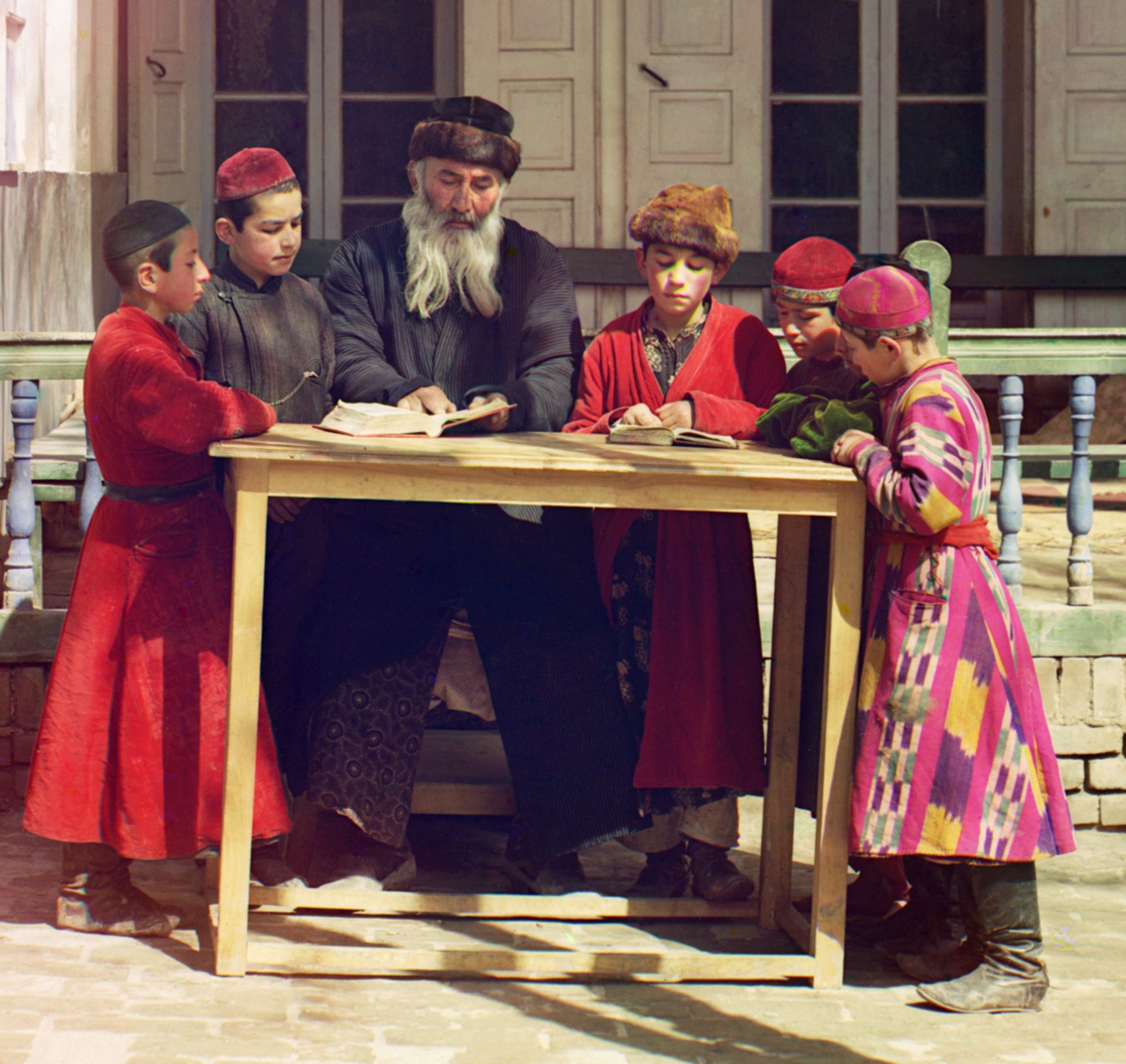Judaism In Uzbekistan on:
[Wikipedia]
[Google]
[Amazon]
 The history of the Jews in Uzbekistan refers to the history of two distinct communities; the more religious and traditional
The history of the Jews in Uzbekistan refers to the history of two distinct communities; the more religious and traditional
JTA
 The history of the Jews in Uzbekistan refers to the history of two distinct communities; the more religious and traditional
The history of the Jews in Uzbekistan refers to the history of two distinct communities; the more religious and traditional Bukharan Jew
Bukharan Jews ( Bukharian: יהודיאני בוכארא/яҳудиёни Бухоро, ''Yahudiyoni Bukhoro''; he, יהודי בוכרה, ''Yehudey Bukhara''), in modern times also called Bukharian Jews ( Bukharian: יהודיאני בוכאר ...
ish community and the Ashkenazi
Ashkenazi Jews ( ; he, יְהוּדֵי אַשְׁכְּנַז, translit=Yehudei Ashkenaz, ; yi, אַשכּנזישע ייִדן, Ashkenazishe Yidn), also known as Ashkenazic Jews or ''Ashkenazim'',, Ashkenazi Hebrew pronunciation: , singu ...
community.
There were 94,900 Jews in Uzbekistan
Uzbekistan (, ; uz, Ozbekiston, italic=yes / , ; russian: Узбекистан), officially the Republic of Uzbekistan ( uz, Ozbekiston Respublikasi, italic=yes / ; russian: Республика Узбекистан), is a doubly landlocked cou ...
in 1989, but fewer than 10,000 remained in 2021 (around 38% of which lived in Tashkent
Tashkent (, uz, Toshkent, Тошкент/, ) (from russian: Ташкент), or Toshkent (; ), also historically known as Chach is the capital and largest city of Uzbekistan. It is the most populous city in Central Asia, with a population of ...
).
There are 12 synagogue
A synagogue, ', 'house of assembly', or ', "house of prayer"; Yiddish: ''shul'', Ladino: or ' (from synagogue); or ', "community". sometimes referred to as shul, and interchangeably used with the word temple, is a Jewish house of worshi ...
s in Uzbekistan.Uzbek Jewish worriesJTA
Fergana Jewish community
Semyon Abdurakhmanov is the head of theFergana
Fergana ( uz, Fargʻona/Фарғона, ), or Ferghana, is a district-level city and the capital of Fergana Region in eastern Uzbekistan. Fergana is about 420 km east of Tashkent, about 75 km west of Andijan, and less than 20 km fr ...
Jewish community. There are six synagogues in the Valley. There are several hundred Jews in Fergana, Namangan, and Kokand
Kokand ( uz, Qo‘qon/Қўқон/قوقان, ; russian: Кока́нд; fa, خوقند, Xuqand; Chagatai: خوقند, ''Xuqand''; ky, Кокон, Kokon; tg, Хӯқанд, Xöqand) is a city in Fergana Region in eastern Uzbekistan, at the sou ...
, with about 1,300 total in the area. Abdurakhmanov has said that the biggest problem faced by the Jewish Uzbek community is the economy.
During the Andijan Massacre in May 2005, the Israeli Embassy in Tashkent asked Abdurakhmanov to make a lists of Jews "in case there will be a need to airlift people to Israel
Israel (; he, יִשְׂרָאֵל, ; ar, إِسْرَائِيل, ), officially the State of Israel ( he, מְדִינַת יִשְׂרָאֵל, label=none, translit=Medīnat Yīsrāʾēl; ), is a country in Western Asia. It is situated ...
."
Historical demographics
The Jewish population of Uzbekistan (then known as the Uzbek SSR) nearly tripled between 1926 and 1970, then slowly declined between 1970 and 1989, followed by a much more rapid decline since 1989, when thecollapse of Communism
The Revolutions of 1989, also known as the Fall of Communism, was a revolutionary wave that resulted in the end of most communist states in the world. Sometimes this revolutionary wave is also called the Fall of Nations or the Autumn of Natio ...
began. According to the Soviet census, there were 103,000 Jews in Uzbekistan in 1970.
Between 1989 and 2021, around ninety percent of Uzbekistan's Jewish population left Uzbekistan and moved to other countries, mostly to Israel.
In the 2021 census, there were almost 10,000 Jews in Uzbekistan, diffused over the country. Over 1,000 were in Bukhara, and almost 1,500 were in Samarkand; around 1,300 were in Fergana, and over 3,700 were in Tashkent. The remaining 2,300 were spread around the country in smaller numbers.
See also
*History of the Jews in Central Asia
The history of the Jews in Central Asia dates back centuries, where Jews have lived in countries which include Kyrgyzstan, Kazakhstan, Mongolia, Uzbekistan and Tajikistan.
Kazakhstan
Joseph Stalin forcibly relocated thousands of Jews from other ...
References
{{Asia in topic, History of the Jews in